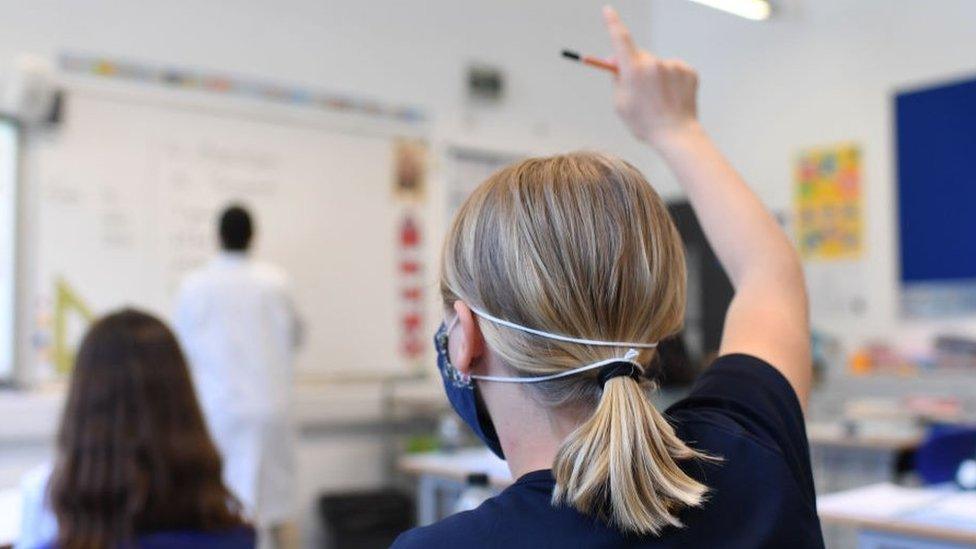Covid-19: Economy minister calls for plans to end restrictions
- Published
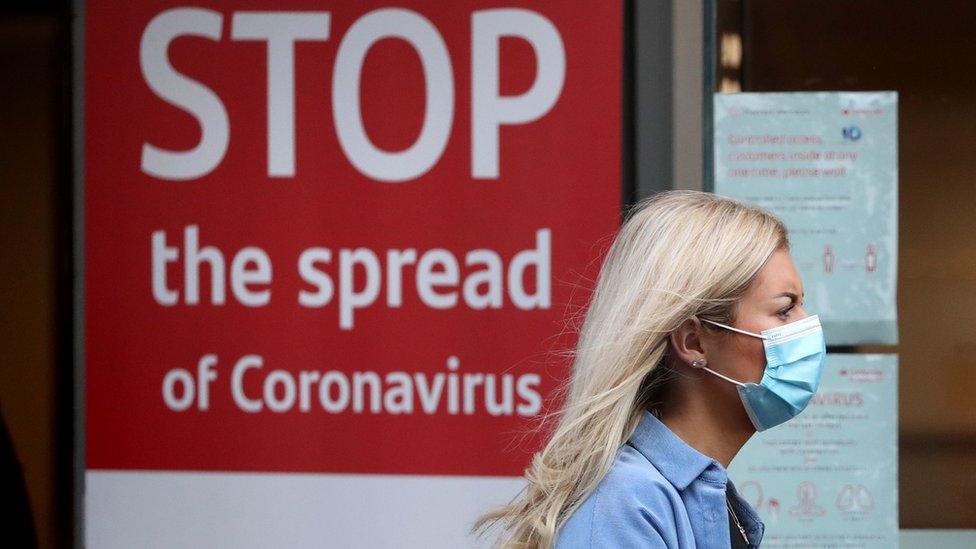
The Stormont executive must now "set out a path" for ending Covid-19 restrictions in Northern Ireland, the economy minister has said.
First Minister Paul Givan previously said he wanted all regulations lifted by the end of September.
Gordon Lyons, Mr Givan's DUP colleague, "absolutely" supports that view.
BBC News NI understands Wednesday's Executive meeting to discuss restrictions has been cancelled after Michelle O'Neill contracted Covid-19.
Hospitality businesses have been calling on ministers to agree to remove restrictions such as social distancing and table service requirements, which they say have damaged trade.
Nightclubs in Northern Ireland also remain closed, unlike in the rest of the UK.
In the Republic of Ireland, the government has agreed to a plan that would end most restrictions on 22 October.
Mr Lyons said he wanted the Stormont executive to provide certainty to the public and businesses in Northern Ireland.

Gordon Lyons says with vaccination rates continuing to rise, it was "inevitable" that restrictions needed to end
"We need to start moving on these issues, we have to take into account the impact on the economy, the health service and society more generally," he told BBC News NI on Tuesday.
"Although we have a steady number of cases, we have had a massive reduction in the number of hospitalisations compared to January and February."
The minister added that with vaccination rates continuing to rise, it was "inevitable" that restrictions needed to end.
"As an executive we've all said we want these restrictions to end as soon as possible, taking all the evidence on board including the economic and health data as well," said Mr Lyons.
Other parties have not stated yet if they support ending restrictions by the end of next month.
Sinn Fein's Deputy First Minister Michelle O'Neill previously said the executive needed to remain "cautious", while the SDLP's Infrastructure Minister Nichola Mallon said it was "naïve" to set a date for an end to restrictions.
Meanwhile, Communities Minister Deirdre Hargey has announced that she is extending legislation to protect private renters from eviction until 4 May 2022.
"Whilst it is clear that the overall situation is greatly improved from the beginning of the pandemic, there is still some way to go. I'm mindful of the economic disruption which may emerge as other protections unwind," she said.
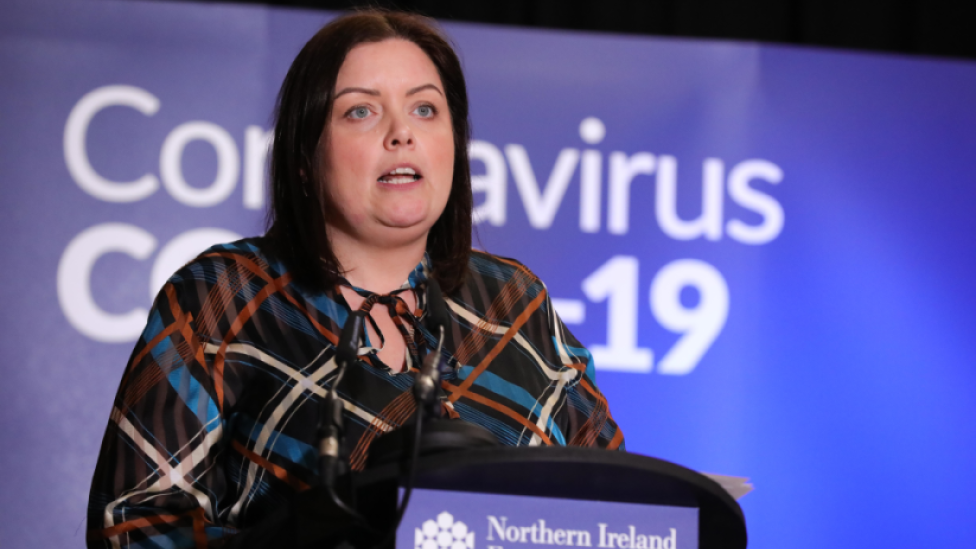
Minister Hargey introduced the Private Tenancies (Coronavirus Modifications) Act at the start of the pandemic
The legislation, which was introduced in response to the pandemic, was due to expire on 30 September. It requires landlords to give tenants a 12-week notice to quit period before seeking a court order to begin proceedings to evict.
What measures currently remain in place?
Although many Covid-19 restrictions have been lifted in Northern Ireland since lockdown eased in April, ministers have retained some measures.
No more than 10 people from three households can meet indoors at a private home.
Face masks are still required by law to be worn in a number of settings including shops and on public transport.
Social distancing laws currently require a minimum of 1m (3ft) in retail and shopping centres, indoor hospitality settings and indoor visitor attractions.
Hospitality businesses are required to operate table service only for drinks, and must record customer details for contact tracing.
Nightclubs in Northern Ireland also remain closed, and dancing is not permitted at indoor venues where music is played.
Related topics
- Published31 August 2021
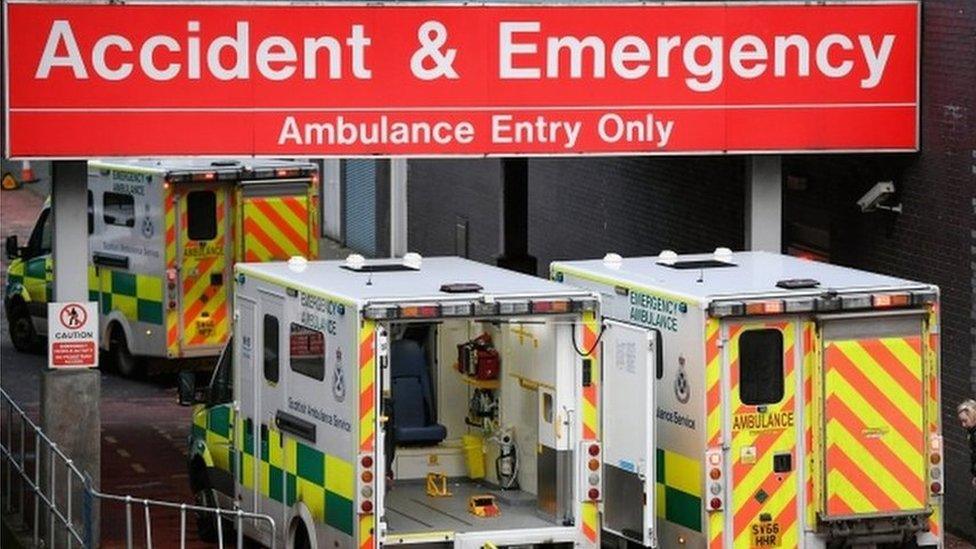
- Published30 August 2021
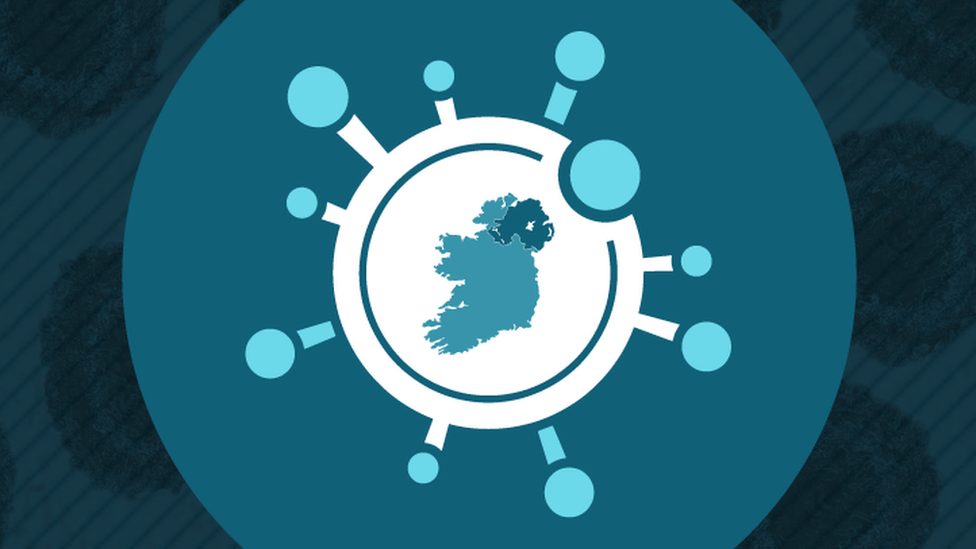
- Published31 August 2021
